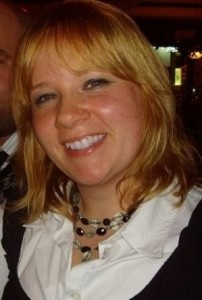My name is Susannah Cornwall, and I’m currently a postdoctoral research fellow at the Lincoln Theological Institute, University of Manchester in the UK. I’m conducting a research project called Intersex, Identity and Disability: Issues for Public Policy, Healthcare and the Church, which will run until 2014. Thanks to Lianne for giving me the opportunity to write a guest post about the project here on her blog!
During the time I was researching my PhD at the University of Exeter, on the theological and ethical implications of intersex, I came across stories from people who had been treated very badly by their Christian communities. I became saddened as I learned about the experiences of a Southern Baptist pastor who had lost his pastorate – and many of his friends – because fellow-pastors had been so suspicious about his intersex identity and ministry to other intersex people. I became, in turn, dismayed, furious and incredulous as I heard of the experiences of Sally Gross, from South Africa, formerly a Roman Catholic priest, whose priestly vows were annulled and who was no longer allowed to receive communion when she transitioned from living as a man to living as a woman (despite having no surgery to alter her intersex anatomy). Sally Gross was told by Christians that, not being fully male or female, she was also not fully human and that her baptism was therefore only as valid as the baptism of a dog, cat, or tin of tuna would have been.
Although I had talked to intersex people about intersex and their Christian identity during the period of my PhD research, these conversations were “off the record” and I didn’t conduct formal interviews. However, I became more and more persuaded that intersex is not a minor or side issue for Christian theology, but one which has implications for some central Christian beliefs about the natures of God and humanity. It also seemed to me more and more odd that no published work on intersex and faith identity—with a specific focus on Christianity as my area of special interest and expertise—seemed to exist. The British denominations’ documents on personhood, sex, gender and sexuality make little to no mention of intersex, and I started to wonder whether this would ever change if church policy makers were not made more aware of the existence of intersex and of the experiences of intersex people.
In my current project, I’m therefore keen to find out whether the negative responses to individuals such as Sally Gross from other Christians are an unfortunate anomaly, or whether it’s commonplace for intersex Christians to feel excluded or shut out in this way by communities of faith. Do intersex Christians tend to find it difficult, for example, to belong to churches which teach strong and unwavering norms of sex and gender? Are there Christians in Britain who’ve shared details of their intersex conditions with Christian friends or their church communities and been rejected or ostracized as a result? Or do intersex people, in fact, tend to find that religious communities are places of support and welcome rather than of exclusion? In what ways, if any, do intersex people feel that church congregations, and the official teachings of the Christian denominations, might do more to celebrate and endorse the full personhood of intersex people?
This research has finally become possible through my appointment as postdoctoral research fellowship with the Lincoln Theological Institute in the Department of Religions and Theology at the University of Manchester. As principal investigator of my own three-year project, I’m undertaking research under the broad title Intersex, Identity and Disability: Issues for Public Policy, Healthcare and the Church. As well as giving space for intersex Christians in Britain to share their own experiences of what it means to navigate intersex identity and Christian faith identity, I hope the project will also come to inform church policy on sex and gender. I’m currently also learning more about how best healthcare chaplains and those working in pastoral care can minister to intersex people and parents of children born with intersex conditions.
I’m still recruiting research participants, so if you or anyone you knows lives in Britain and identifies as intersex and Christian (whether or not you currently attend a church), please do get in touch. More information and regular updates about the project can be found here.
Susannah Cornwall’s book, Sex and Uncertainty in the Body of Christ: Intersex Conditions and Christian Theology, was published by Equinox in 2010 and is available to buy online at Amazon or Equinox.


I have come across some discrimination at the hands of Ministers that should know better, whilst ordinary members of the same congregation have been more than understanding. And in over 20years of working with young teenagers; I have spent a lot of time opening there minds to other possibilites. Whilst speaking to them about my own intersex condition.